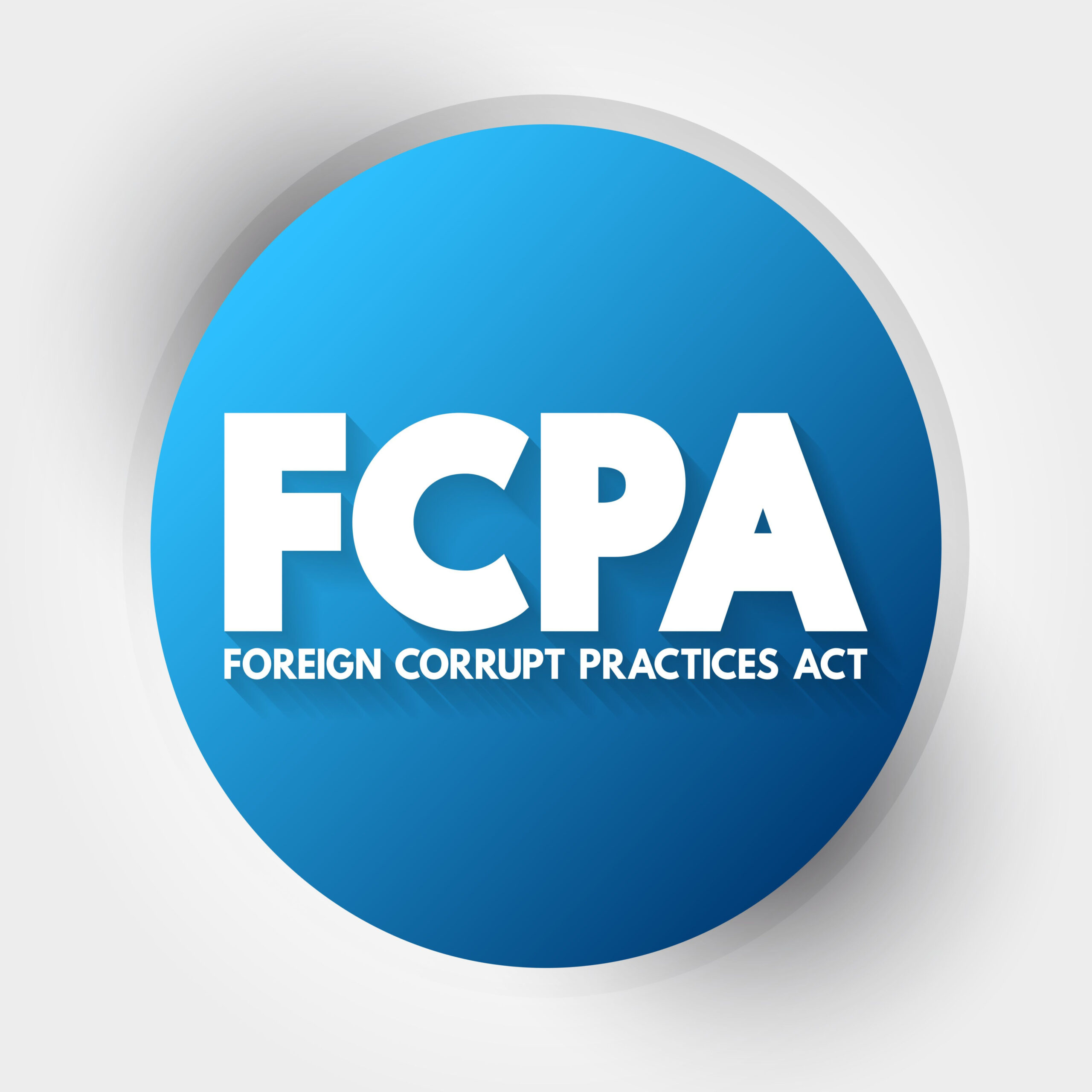The FCPA prohibits payment of bribes to foreign officials to assist with obtaining or retaining business. It also requires companies whose securities are listed in the US to make and keep books and records that accurately and fairly reflect their transactions and devise and maintain adequate systems of internal accounting controls. Violations of the FCPA can lead to civil and criminal penalties, sanctions, and remedies, including fines, disgorgement, and/or imprisonment. Senior Level Executives have a responsibility for ensuring that they implement FCPAs policies and procedures, hire experienced compliance professionals, provide effective training for relevant employees (including human resources) and appropriately screen consultants or third-party representatives and or vendors.
What is Covered under the FCPA
As per the FCPA Resource Guide, the FCPA applies only to payments, offers, or promises made for the purpose of:
- influencing any act or decision of a foreign official in his official capacity,
- inducing a foreign official to do or omit to do any act in violation of the lawful duty of such official,
- securing any improper advantage; or
- inducing a foreign official to use his influence with a foreign government or instrumentality thereof to affect or influence any act or decision of such government or instrumentality.
The payment, offer, or promise must be made in order to assist “in obtaining or retaining business for or with, or directing business to, any person.” This requirement is known as the “business purpose test”. Many enforcement actions involve bribes to obtain or retain government contracts. The FCPA prohibits bribes in connection with conducting business or to gain a business advantage. The Guide states that bribe payments made to secure favorable tax treatment, to reduce or eliminate customs duties, to obtain government action to prevent competitors from entering a market, or to circumvent a licensing or permit requirement, can all satisfy the business purpose test.
Business Purpose Test
Bribing foreign officials to lower taxes and customs duties certainly can provide an unfair advantage over competitors and thereby be of assistance to the payor in obtaining or retaining business. “Congress intended for the FCPA to apply broadly to payments intended to assist the payor, either directly or indirectly, in obtaining or retaining business for some person, and that bribes paid to foreign tax officials to secure illegally reduced customs and tax liability constitute a type of payment that can fall within this broad coverage”.
In “United States v. Kay”, it was learned that that bribes paid to obtain favorable tax treatment; including a company’s ability to lower customs duties and sales taxes on imports, could constitute payments made to “obtain or retain” business within the meaning of the FCPA. Hence, payments to obtain favorable tax treatment can, under appropriate circumstances, violate the FCPA.
In sum, the FCPA covers “bribes paid to help obtain or retain business, which can include payments made to secure a wide variety of unfair business advantages”.
Examples of Actions Taken to Obtain or Retain Business
- Winning a contract
- Influencing the procurement process
- Circumventing the rules for importation of products
- Gaining access to non-public bid tender information
- Evading taxes or penalties
- Influencing the adjudication of lawsuits or enforcement actions
- Obtaining exceptions to regulations
- Avoiding contract termination
Why is the FCPA important?
Individuals face mounting risks of liability under the FCPA. Individuals ought to prevent FCPA violations by ensuring that there is a comprehensive compliance program in place and knowing “who they are doing business with”. Moreover, Senior Level Executives need to question if the comprehensive compliance programs outlay the right internal accounting controls as opposed to “unspoken” environments that could permit “circumventing the controls”. Senior Level Executives can and have been named personally in both civil and criminal enforcement actions involving and anti-bribery rules under the FCPA.
Know this
The Prosecution of Individuals is a Priority for the US Department of Justice (DOJ).
Who is your Corporate Governance Advisor? ©


